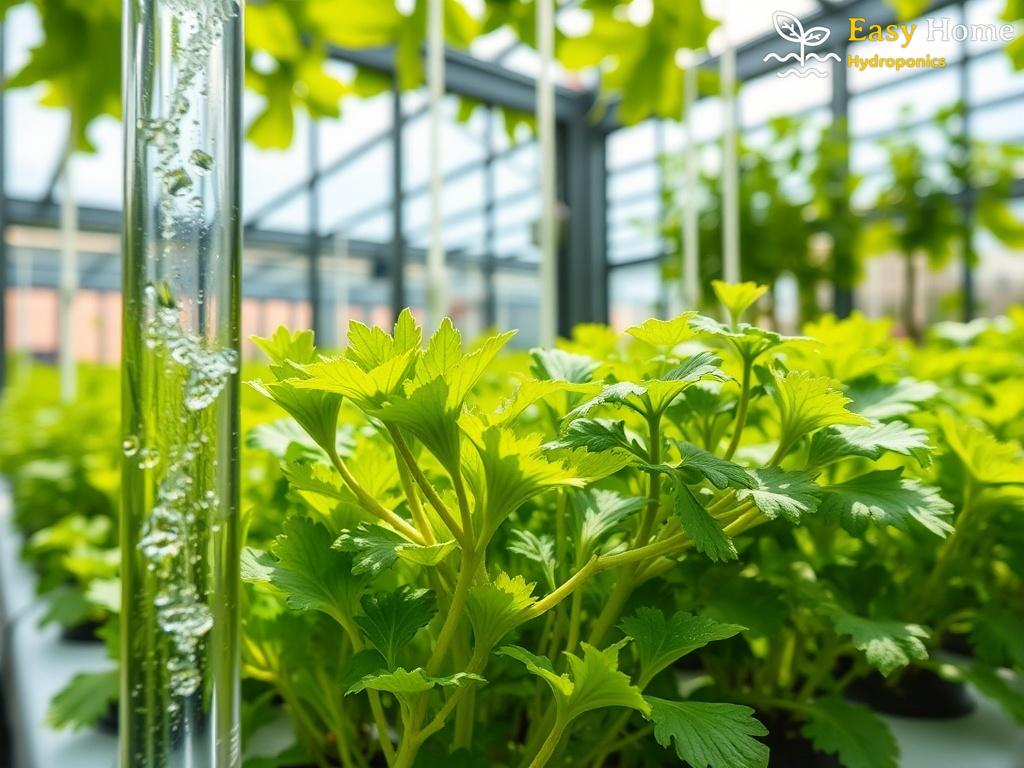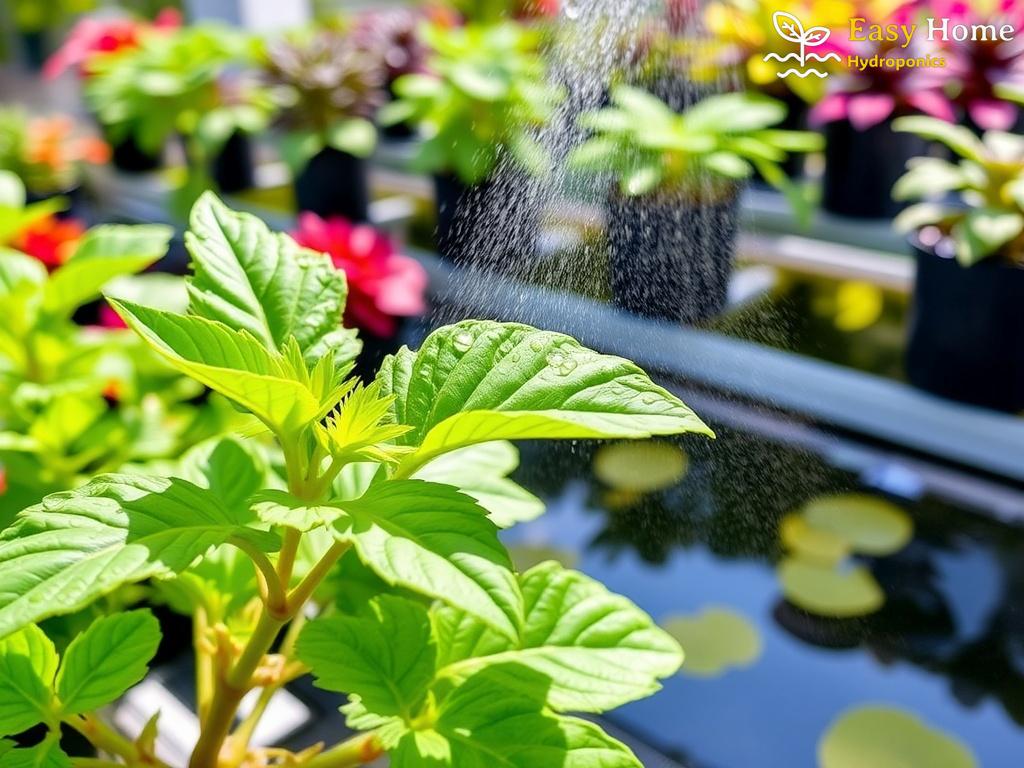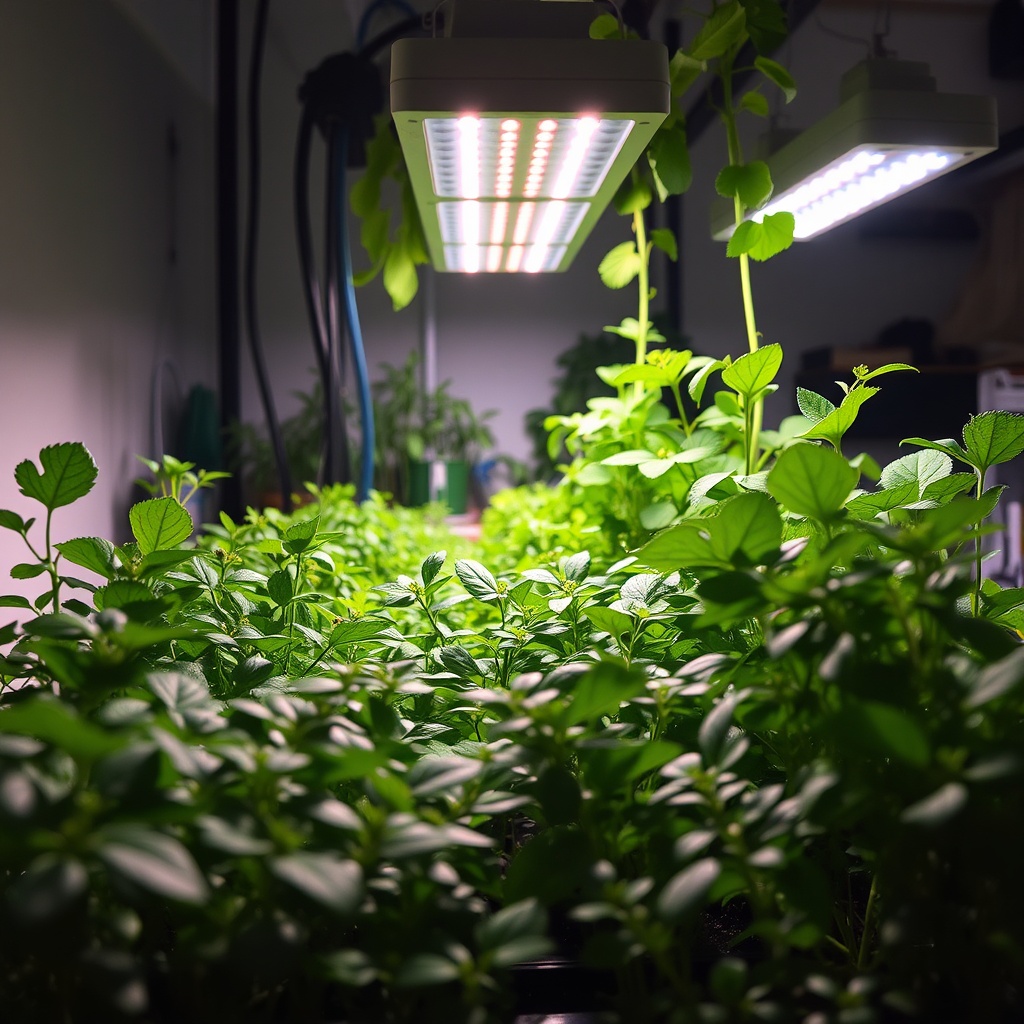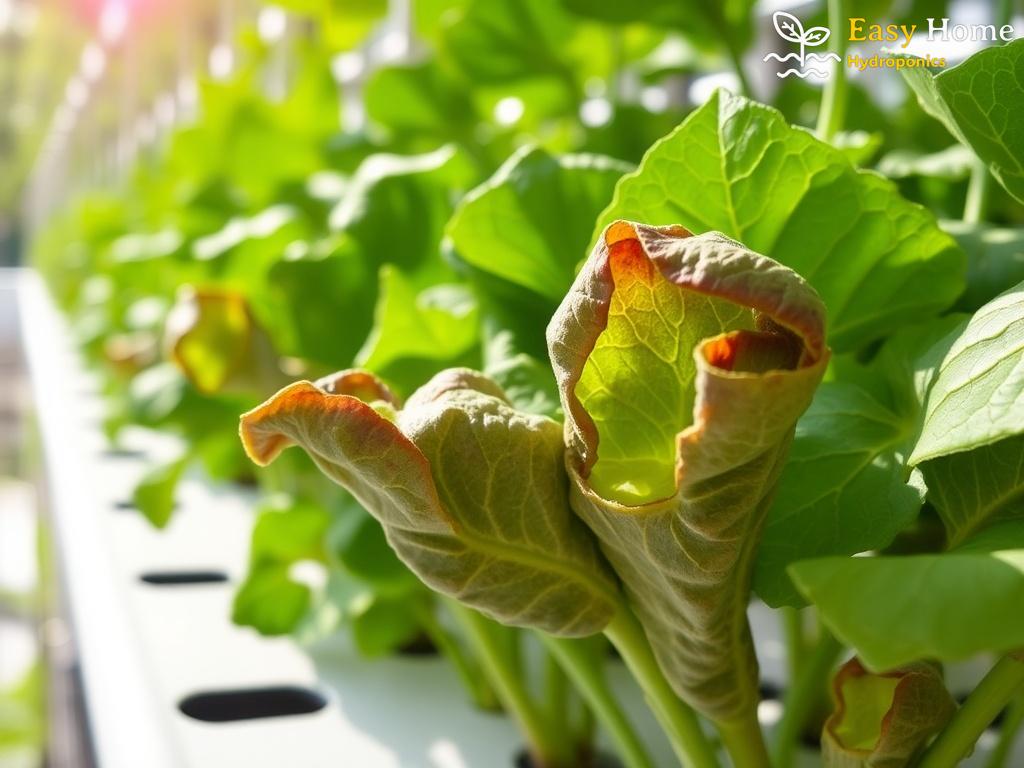Kelp: Nature’s Nutrient Powerhouse

Kelp, often dubbed as nature’s nutrient powerhouse, is a seaweed that thrives in the ocean’s rich environments. This incredible organism is packed with an array of vitamins, minerals, and trace elements that are essential for plant growth. Not only does kelp provide vital nutrients, but it also enhances the overall health of hydroponic systems, making it a staple for growers looking to maximize their yields.
When we delve into the composition of kelp, we find that it contains over 70 different micronutrients, including potassium, calcium, magnesium, and iron. These nutrients play a crucial role in various physiological processes within plants, promoting better root development and increasing overall resilience against diseases.
The integration of kelp into hydroponic nutrient solutions is nothing short of revolutionary. Hydroponics, a method that allows plants to grow without soil, relies heavily on nutrient solutions for plant health. Kelp enhances these solutions in multiple ways, making it a must-have for hydroponic enthusiasts.
Some of the remarkable benefits of adding kelp to hydroponic systems include:
- Improved Nutrient Uptake: Kelp’s unique composition allows plants to absorb nutrients more efficiently, ensuring optimal growth.
- Natural Growth Hormones: Kelp contains auxins, cytokinins, and gibberellins, which are hormones that help stimulate plant growth and development.
- Stress Resistance: The bioactive compounds found in kelp can help plants withstand stress from drought, pests, and diseases.
In the world of hydroponics, the choice of nutrient sources can significantly affect plant health and yield. Kelp stands out when compared to synthetic fertilizers, as it offers a more holistic approach to feeding plants.
| Nutrient Source | Natural Benefits | Synthetic Benefits |
|---|---|---|
| Kelp | Rich in micronutrients, promotes microbial activity, enhances soil health. | Quick nutrient release, easy to measure and mix. |
| Organic Fertilizers | Improves soil structure, slow-release of nutrients. | Higher nutrient concentration, easier application. |
| Synthetic Fertilizers | Consistent nutrient ratios, immediate effects on growth. | Risk of nutrient burn, less beneficial for soil health. |
In conclusion, kelp is not just another nutrient source; it is a holistic approach to nurturing plants in hydroponic systems. By incorporating kelp-derived solutions, growers can achieve healthier plants and more bountiful harvests.
Unlocking Growth: The Benefits of Kelp Extracts
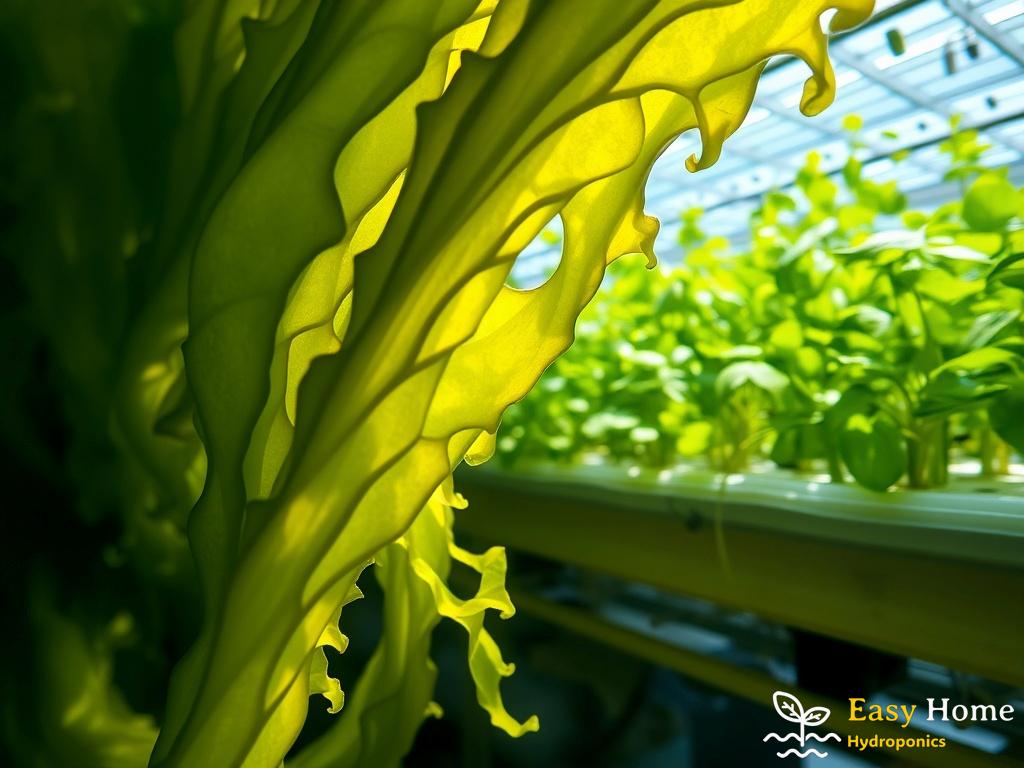
In the dynamic world of hydroponics, where every detail matters, the inclusion of kelp extracts has emerged as a game-changer for growers looking to elevate their plant care strategies. These extracts, derived from the nutrient-rich kelp, offer an array of benefits that go beyond mere nutrition. As the quest for sustainable and efficient growing methods intensifies, understanding the unique advantages of kelp extracts becomes essential for any serious hydroponic enthusiast.
Kelp extracts are not just about providing essential nutrients; they also carry a treasure trove of bioactive compounds that promote healthy plant growth. One of the standout features of these extracts is their ability to enhance soil health within hydroponic systems. This is crucial because a thriving ecosystem allows plants to grow more robustly. Moreover, the natural growth hormones present in kelp extracts, such as auxins and cytokinins, stimulate vital processes like cell division and elongation. As a result, plants experience accelerated growth rates and improved overall vitality.
The world of plants is fraught with challenges, including nutrient deficiencies, drought, and pest infestations. Here, kelp extracts shine as powerful biostimulants that bolster plants’ defenses against various stresses. Notably, the polysaccharides found in kelp can enhance cell wall strength, making plants more resistant to external pressures. This increased resilience translates into healthier plants that are less susceptible to diseases and environmental stressors.
Furthermore, the utilization of kelp extracts has been shown to improve nutrient uptake efficiency. This is particularly beneficial in hydroponic systems where nutrient delivery is crucial. By enhancing the plant’s ability to absorb essential minerals, kelp extracts ensure that every drop of nutrient solution is utilized effectively, maximizing growth potential.
What sets kelp extracts apart from traditional nutrient solutions is their ability to create a synergistic effect. When combined with other organic fertilizers, kelp extracts amplify the overall effectiveness, resulting in a more balanced nutrient profile. This is essential because plants thrive best when their nutritional needs are met holistically rather than through isolated sources. The presence of kelp in nutrient solutions not only diversifies the nutrient supply but also fosters a more dynamic growing environment.
In summary, the incorporation of kelp extracts into hydroponic nutrient solutions unlocks a myriad of benefits that lead to healthier, more productive plants. As growers continue to explore innovative methods for optimal cultivation, the role of kelp extracts will undoubtedly remain at the forefront of sustainable hydroponic practices.
Kelp’s Role in pH Balance and Nutrient Uptake
In the intricate dance of hydroponics, where every element plays a crucial role in the success of plant growth, kelp emerges as a silent yet powerful ally. Not only does it enrich the nutrient solutions with its vast array of vitamins and minerals, but it also contributes significantly to maintaining the pH balance essential for optimal nutrient uptake. Understanding how kelp influences these vital aspects can empower growers to create the most conducive environment for their plants to thrive.
One of the remarkable characteristics of kelp is its natural ability to stabilize pH levels within hydroponic systems. When incorporated into nutrient solutions, kelp helps buffer fluctuations that can occur due to various factors, such as the addition of fertilizers or changes in water chemistry. This stabilization is paramount because plants can only absorb nutrients effectively within a specific pH range. When the pH is too high or too low, nutrient availability diminishes, leading to deficiencies that can stunt growth and reduce yields. By ensuring a balanced pH, kelp not only helps plants access essential nutrients but also fosters an environment that supports their overall health.
Moreover, kelp’s impact on nutrient uptake extends beyond mere pH stabilization. The unique composition of kelp is rich in natural growth hormones, which play a vital role in enhancing a plant’s ability to absorb nutrients. Auxins, cytokinins, and other bioactive compounds present in kelp stimulate root development and promote the formation of root hairs, which are crucial for nutrient absorption. This increased root surface area allows plants to take in nutrients more efficiently, ensuring that they receive the optimal amount necessary for robust growth. Consequently, the infusion of kelp extracts into hydroponic solutions can lead to visibly healthier plants, characterized by lush foliage and vibrant colors.
In addition to its buffering properties and hormonal benefits, kelp also supports microbial life within hydroponic systems. Healthy microbial communities play a significant role in breaking down nutrients and making them more bioavailable to plants. Kelp acts as a food source for beneficial microbes, promoting their growth and activity. This symbiotic relationship enhances the overall nutrient cycling within the system, further improving plant health and productivity. As a result, incorporating kelp into nutrient solutions creates a thriving ecosystem that not only nourishes the plants but also sustains the beneficial microorganisms essential for a balanced hydroponic environment.
Sustainable Hydroponics: Kelp’s Eco-Friendly Edge
As the quest for sustainable agricultural practices continues to gain momentum, kelp emerges as a frontrunner in the realm of hydroponics. This remarkable seaweed not only offers an impressive array of nutrients but also aligns perfectly with eco-friendly growing methods, making it a natural choice for environmentally conscious growers. The integration of kelp into hydroponic systems represents more than just a nutritional boost; it embodies a holistic approach to fostering plant growth while preserving the health of our planet.
Harnessing Nature’s Bounty through kelp is not just an advantage; it’s a commitment to sustainable practices. Traditional fertilizers often rely on synthetic compounds that can lead to nutrient runoff and environmental degradation. In contrast, kelp provides a rich source of organic matter that contributes to soil health and minimizes ecological impact. By utilizing kelp in nutrient solutions, growers can significantly reduce their reliance on chemical inputs, paving the way for a more sustainable future.
Enhancing Biodiversity is another critical aspect of incorporating kelp into hydroponics. The bioactive compounds found in kelp not only benefit plants but also support beneficial microorganisms within the nutrient solutions. These microorganisms play a pivotal role in nutrient cycling, improving plant health and resilience. As kelp nourishes these microbial communities, it fosters a dynamic ecosystem that promotes biodiversity, essential for maintaining ecological balance.
Moreover, the sustainable harvesting of kelp from oceans further emphasizes its eco-friendly edge. Unlike terrestrial crops that require extensive land use, water, and fertilizers, kelp grows abundantly in marine environments with minimal human intervention. This seaweed is harvested in a way that preserves underwater habitats and promotes marine biodiversity, making it a truly sustainable resource for hydroponic applications.
In essence, kelp’s role in hydroponic nutrient solutions transcends mere nutrition; it represents a paradigm shift towards more sustainable agriculture practices. By choosing kelp, growers not only enhance their plant’s growth and resilience but also take a significant step towards eco-friendly farming. As the agricultural landscape continues to evolve, embracing kelp as a key element of hydroponics may well be the secret ingredient for a greener, more sustainable future.
Comparing Kelp with Traditional Nutrient Sources
In the evolving landscape of hydroponics, the quest for efficient and sustainable nutrient solutions has led many growers to explore the remarkable benefits of kelp. As we delve deeper into the comparison between kelp and traditional nutrient sources, it becomes increasingly clear that this seaweed is more than just a nutrient supplement; it is a transformative agent for plant health and growth. By examining the distinct characteristics of kelp alongside conventional fertilizers, we can appreciate the unique advantages that kelp brings to the table.
Embracing the Natural Approach to plant nutrition reveals a fundamental difference between kelp and synthetic fertilizers. While traditional nutrient sources often rely on chemically synthesized compounds, kelp boasts an impressive arsenal of natural nutrients derived directly from the ocean. This organic approach not only enriches the nutrient profile but also enhances soil health. Kelp is rich in micronutrients, which are essential for various physiological processes in plants, promoting not just growth but also resilience against diseases. In contrast, synthetic fertilizers can sometimes lead to nutrient imbalances and soil degradation over time, making kelp a more sustainable choice for long-term cultivation.
Unlocking Growth Hormones is another area where kelp shines brightly. Unlike conventional fertilizers, which primarily focus on macronutrients like nitrogen, phosphorus, and potassium, kelp contains a wealth of natural growth hormones, including auxins and cytokinins. These hormones stimulate root development, enhance nutrient uptake, and encourage vigorous growth. This hormonal benefit is particularly crucial in hydroponic systems, where rapid growth is often desired. Traditional fertilizers may provide immediate nutrient availability, but they lack the holistic growth stimulation offered by kelp, which ultimately leads to healthier and more robust plants.
Resilience Through Diversity is a key advantage of incorporating kelp into hydroponic nutrient solutions. The bioactive compounds present in kelp not only nourish plants but also support beneficial microorganisms within the nutrient solution. This symbiotic relationship fosters a thriving ecosystem that enhances nutrient cycling and improves plant health. On the other hand, the use of synthetic fertilizers can sometimes disrupt the natural microbial balance, potentially leading to nutrient lockout and decreased plant vitality. Kelp’s ability to enrich the microbial community makes it a vital component for those looking to create a balanced and dynamic hydroponic environment.
In conclusion, the comparison between kelp and traditional nutrient sources highlights kelp’s unique capabilities as a holistic nourishing agent for plants. By choosing kelp, growers can embrace a more sustainable approach that not only promotes plant health but also contributes to a thriving and resilient hydroponic ecosystem.

